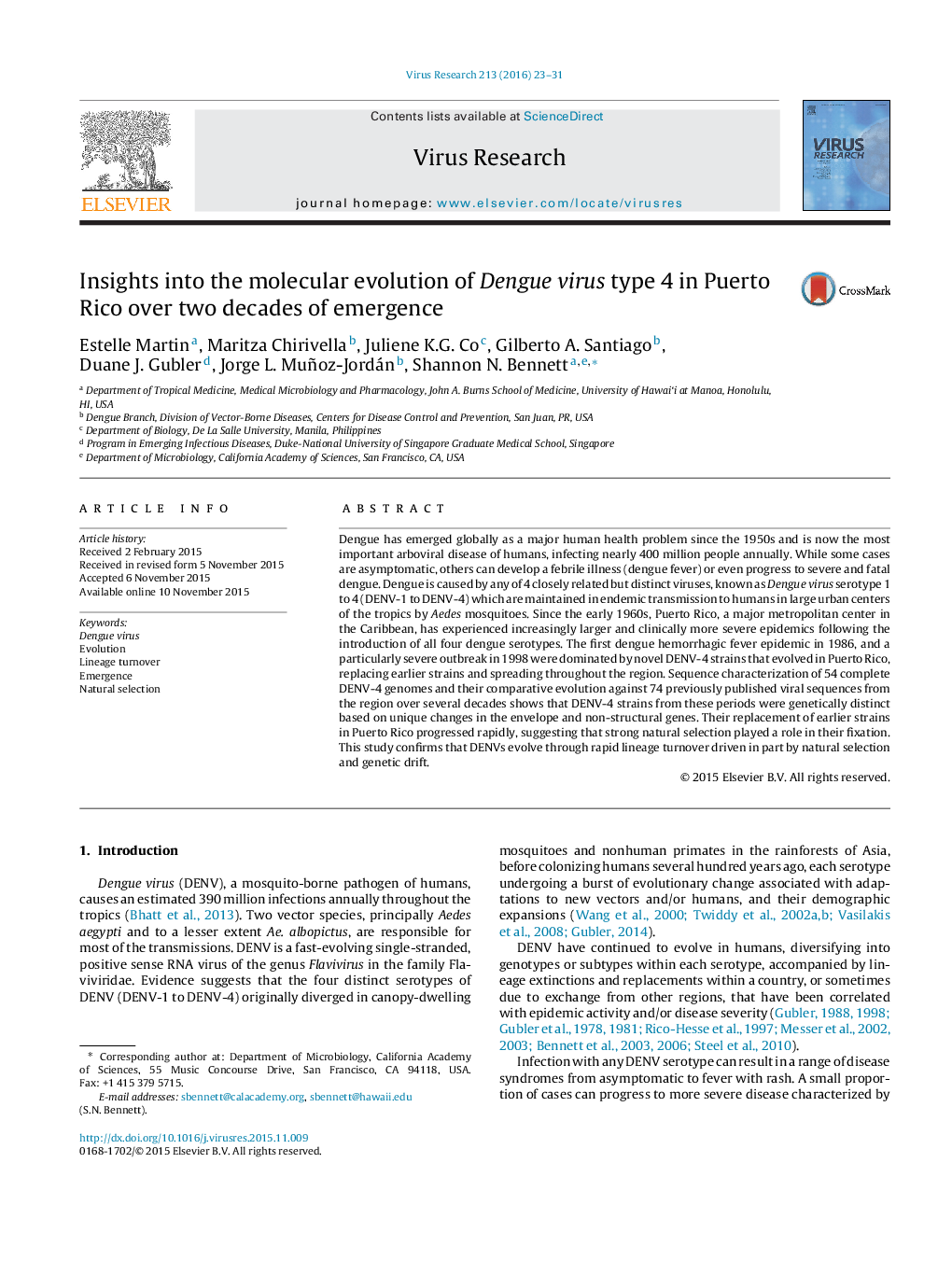| Article ID | Journal | Published Year | Pages | File Type |
|---|---|---|---|---|
| 3427891 | Virus Research | 2016 | 9 Pages |
•Dengue viruses, which have been emerging in Puerto Rico over the past few decades to cause larger and increasingly severe epidemics, have also been evolving markedly over this period.•Dengue virus type 4 (DENV-4) in particular caused a sudden and severe outbreak in 1998, associated with a unique strain of virus that persisted at least until 2010, another year in recent history notable for intense dengue activity.•This epidemic-associated strain of DENV-4 was characterized for its entire genome, demonstrating that it bore several unique mutations in envelope and non-structural genes.•The replacement of earlier strains by this epidemic strain progressed rapidly, suggesting that the epidemic strain was more fit, and that natural selection may have acted on these mutations to drive them to fixation.
Dengue has emerged globally as a major human health problem since the 1950s and is now the most important arboviral disease of humans, infecting nearly 400 million people annually. While some cases are asymptomatic, others can develop a febrile illness (dengue fever) or even progress to severe and fatal dengue. Dengue is caused by any of 4 closely related but distinct viruses, known as Dengue virus serotype 1 to 4 (DENV-1 to DENV-4) which are maintained in endemic transmission to humans in large urban centers of the tropics by Aedes mosquitoes. Since the early 1960s, Puerto Rico, a major metropolitan center in the Caribbean, has experienced increasingly larger and clinically more severe epidemics following the introduction of all four dengue serotypes. The first dengue hemorrhagic fever epidemic in 1986, and a particularly severe outbreak in 1998 were dominated by novel DENV-4 strains that evolved in Puerto Rico, replacing earlier strains and spreading throughout the region. Sequence characterization of 54 complete DENV-4 genomes and their comparative evolution against 74 previously published viral sequences from the region over several decades shows that DENV-4 strains from these periods were genetically distinct based on unique changes in the envelope and non-structural genes. Their replacement of earlier strains in Puerto Rico progressed rapidly, suggesting that strong natural selection played a role in their fixation. This study confirms that DENVs evolve through rapid lineage turnover driven in part by natural selection and genetic drift.
